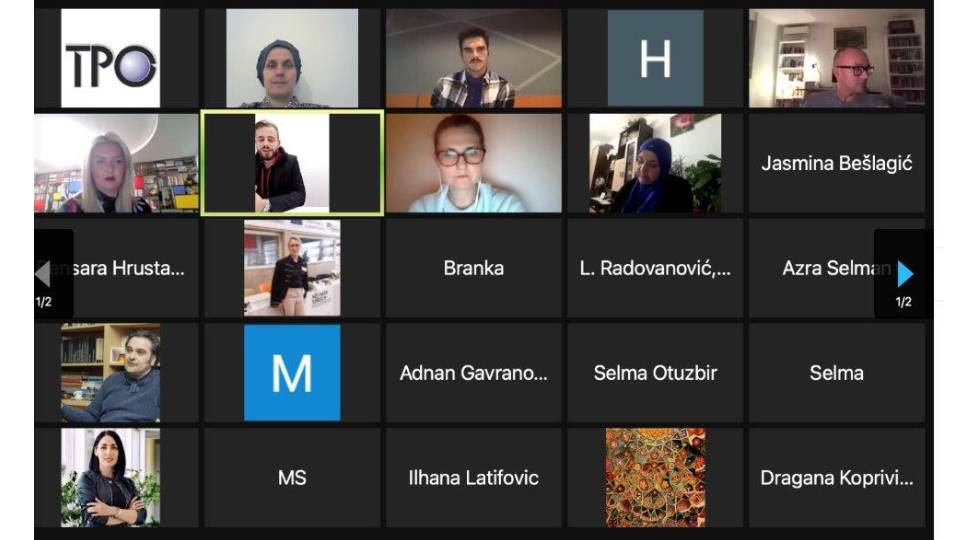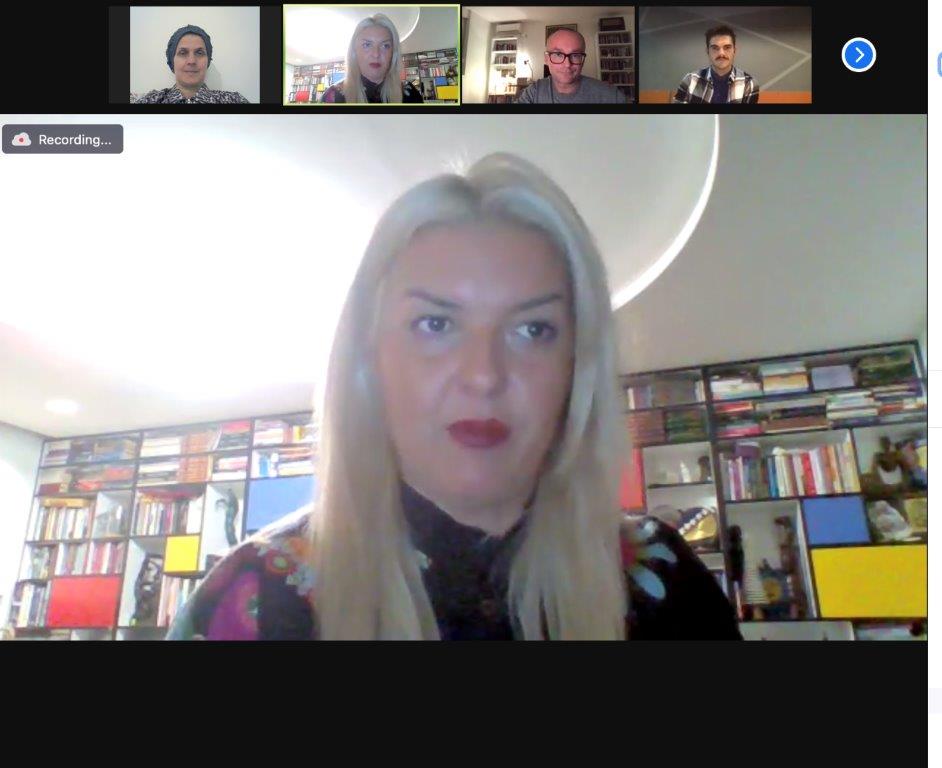October 2021
MY STORY MATTERS – Four life stories

University and Gender Mainstreaming (UNIGEM) project which is supported by the British Embassy in Bosnia and Herzegovina and implemented by the TPO foundation at 17 universities in Bosnia and Herzegovina, Serbia, Croatia and Montenegro, has within the campaign “16 days of activism against gender-based violence” organized a panel discussion on the topic “Men against gender-based violence” which has gathered a large number of interested students and teaching staff at its partner universities. The panelists at this meeting were the distinguished prof. dr Damir Arsenijević, Nikola Vučić from N1 television and Mirza Rastoder, director of the Homework HUB team. Mrs. Dženita Zidrum has moderated this meeting.




The panel discussion “Men against gender-based violence” has opened up space for confronting the important role that men need to take in the systemic struggle against gender-based violence. Within this discussion, the panelists recognized gender-based violence as an obstacle to the development of society as a whole, both interpersonally and economically. Recognizing and addressing the causes of gender-based violence is in this sense an important precondition for creating a more peaceful and stable society in which men, women and children are free to enjoy their rights and in which their rights are being respected. Gender inequality and unequal social relations that arise out of it lead to gender-based violence and need to be treated as such. The author of the publication “Critique of Toxic Masculinity” Nikola Vučić emphasized that the common basis of identity for both man and woman is contained within the dimension of their basic humanity in which it is an imperative to be responsible, tolerant, empathetic and sensitive to marginalization and oppression of any kind. In that sense, Vučić pointed out that being a man and being a woman in society means to have common supporting pillars on which one’s individual identity needs to be established. The panelist Mirza Rastoder pointed out that the basic and most widespread form of gender-based violence in our society is in fact psychological violence, and that the lack of reaction to this form of violence is what worries the most. Prof. Dr. Damir Arsenijević emphasized in this sense the importance of continuous critical reflections on traditional and patriarchal gender relations. Through this form of questioning it is, according to Arsenijević, important to point to a deeply enrooted system of power relations in which gender-based violence is not being recognized as such. The conclusion of this online panel discussion is that the individualization of gender-based violence is not an adequate response to this phenomenon and that society, as a whole needs to respond to structural violence by identifying it within the context of broader power relations in society. A proactive approach to these phenomena in public space, and in particular at universities, is the most important form of preventive action in terms of combating gender-based violence and discrimination, and as such, it needs to be undertaken by the society as a whole.





















